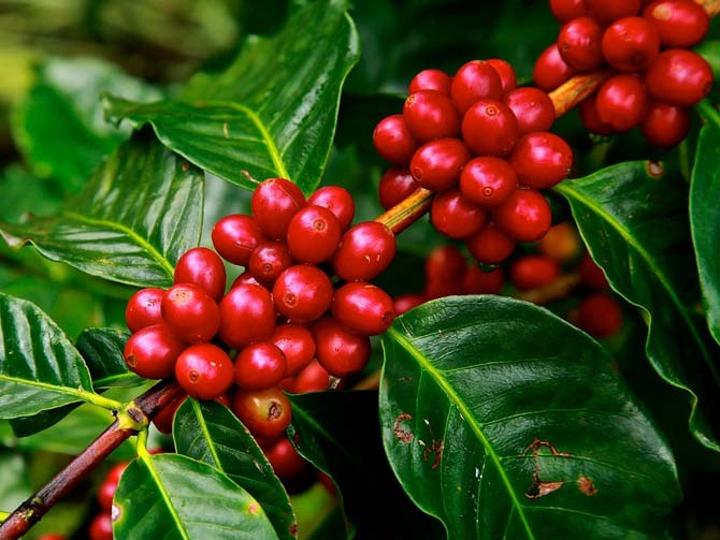Africa-Press – Tanzania. PLANS are underway to distribute over 31 million coffee seedlings to farmers across the country by end of 2021/22 financial year.
The Tanzania Coffee Research Institute (TaCRI) said during the 2020/21 and 2021/22 financial year a total of 31,675,744 seedlings of the new varieties would have been produced and distributed.
They include the varieties of both Arabica and Robusta coffee seedlings which are resistant to the coffee deadly diseases namely Coffee Berry Disease (CBD) and Coffee Leaf Rust (CLR) for Arabica coffee and Coffee Wilt Disease (CWD) for Robusta coffee.
These seedlings reduce production costs as less fungicides and herbicides which are expensive are required, gives higher yields per unit area, produces coffee with bigger bean sizes with good flavor thus liked by many people across the globe meaning always fetching good prices in the world market.
Chief Executive Director of the Tanzania Coffee Research Institute (TaCRI), Dr Deusdedit Kilambo, revealed this when addressing the 11th National Coffee Stakeholders’ Meeting held in Dodoma recently.
Dr Kilambo said a total of 11,382,474 of such seedlings were already produced and distributed to farmers in 2020/21 while it is anticipated that a total of 20,293,270 of the same will be produced and distributed to farmers in 2021/22.
“Not only TaCRI alone but local government authorities (LGA’s) in coffee producing districts numbering to 69 across the country will also produce such seedlings through cooperation with my Institute which have always assisted and will continue assisting in the establishments of mother tree gardens later to produce such seedlings through clonal vegetative methods” he said adding that through such an initiative a total of 69 district councils in 18 coffee producing regions across the country will produce and distribute to farmers a total of 10 million seedlings.
Talking on methods which have been adopted and will continue being adopted to produce the said new varieties of Arabica and Robusta coffee seedlings he named them to be clonal vegetative propagation, grafting techniques and the production of compact hybrid seedlings for both Arabica and Robusta coffee.
The TaCRI Chief took time to pay tributes to various districts across the country for their good efforts of supporting and financing the establishments of coffee nurseries which produces respective coffee seedlings.
He named such districts to be Muleba-Kagera, Kigoma rural, Bumbuli-Tanga, Mbinga-Ruvuma, Same-Kilimanjaro, Butiama-Mara, Ludewa-Iringa and Mvomero in Morogoro region.
Citing an example of how the new varieties of Arabica coffee seedlings are of benefits to farmers he cited one farmer in Tarime district in Mara region, Mr Mwita Hechei whom he said such a farmer with a total of 1,300 convectional coffee trees I a hectare used to produce 0.65-2.3 tons of coffee which gave him Tshs 1.9-6.9 million in each coffee harvesting season.
However, he said upon planting a total of 1,641 seedlings of the new varieties of Arabica in the same farm this same farmer was able to produce a total of 4.92 tons of coffee thereby earning a total of 14.8m/-.
Coming to challenges facing the production of these seedlings he said production costs have been the main challenge ad to this he call upon coffee producing districts and other relevant authorities countrywide to set aside funds later to finance and support the production and distribution to farmers respective seedlings.
Giving details on the said production costs her said the production of one Arabica coffee seedlings through clonal vegetative propagation methods is 1,467/-, 1,714/- for the same in Robusta coffee, 1,150/- per tree when using grafting techniques, compact hybrid Arabica seedlings 1,138/- per seedlings while production of composite Robusta seedlings stands at 1,115/-.
“TaCRI is currently facing a big budget deficit of around 1.743tri/- arising from the fact that what we used to get from farmers as our main stakeholders which was 0.75 percent of the coffee prices per every kilogram sold through Direct Coffee Export and Tanzania Coffee Board (TCB) Moshi Coffee Exchange (Auctions) have been halved to 0.375 percent of the same.
Concluding the TaCRI Chief said what his Institution is currently getting to finance its activities supposed to cover 18 coffee producing regions across the country is only enough to cover 3 regions.







